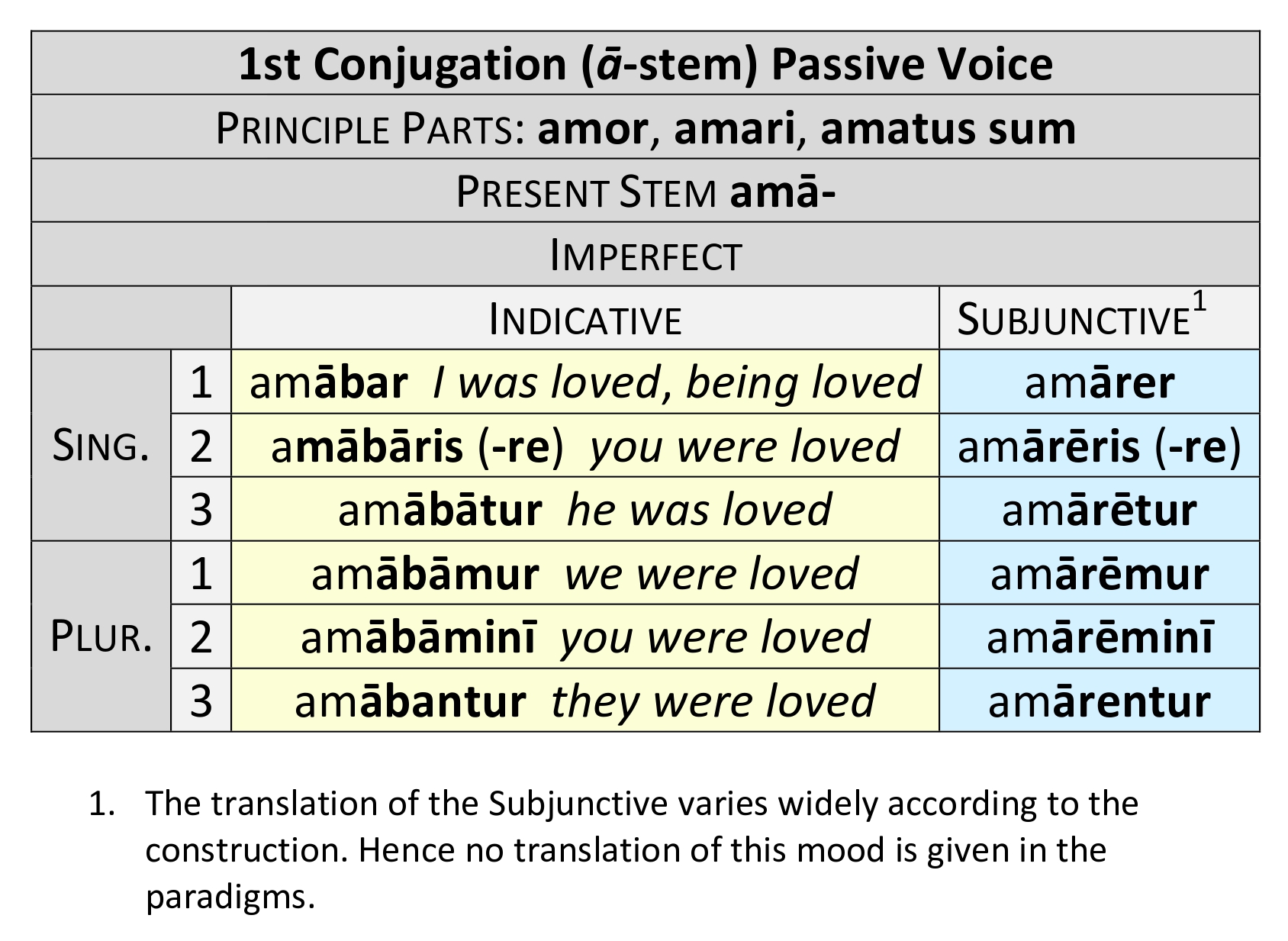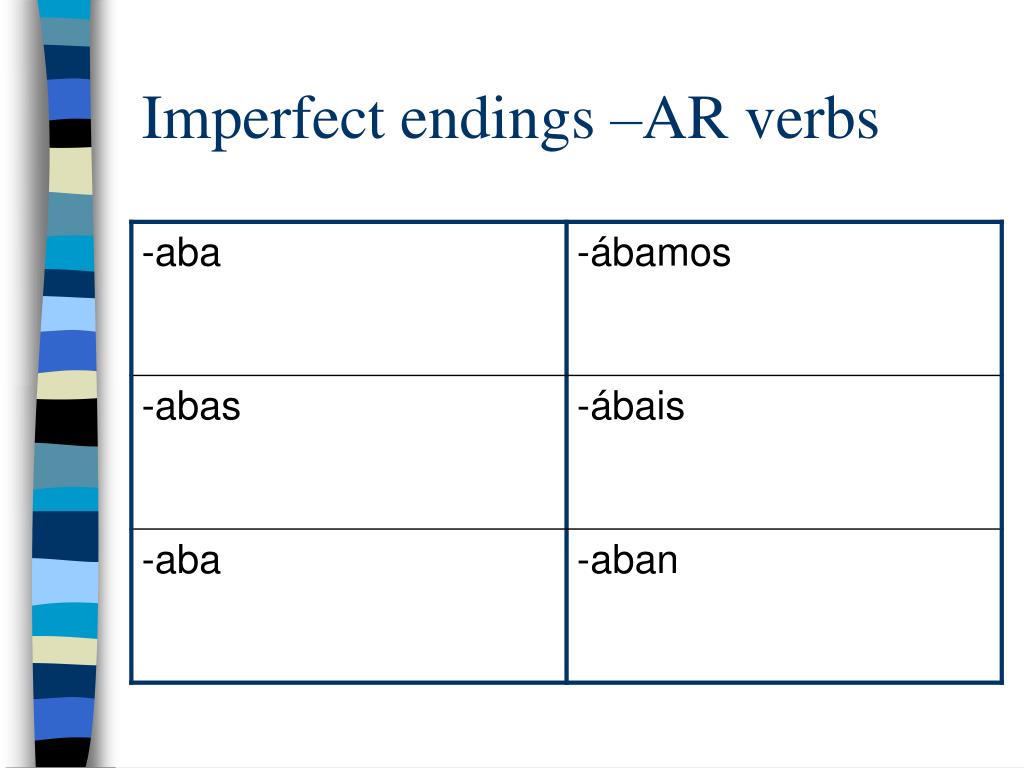
This generally does not affect how the imperfect is used. Often used with verbs of being, emotion, capability, or conscience.Ī common mistake of beginners learning a Romance language is putting too much emphasis on whether the time the action occurred is known.


The imperfect is signified by the signs ba and ebā.Habitual (repeated) action in the past can be marked by used to, as in "I used to eat a lot", or by the auxiliary verb would, as in "Back then, I would eat early and would walk to school." (The auxiliary would also has other uses, such as expressing conditional mood.) However, in many cases the habitual nature of the action does not need to be explicitly marked on the verb, and the simple past is used: "We always ate dinner at six o'clock." Imperfect meanings in English are expressed in different ways depending on whether the event is continuous or habitual.įor a continuous action (one that was in progress at a particular time in the past), the past progressive (past continuous) form is used, as in "I was eating" "They were running fast." However certain verbs that express state rather than action do not mark the progressive aspect (see Uses of English verb forms § Progressive) in these cases the simple past tense is used instead: "He was hungry" "We knew what to do next." The equivalent Ancient Greek term was paratatikós "prolonged". "Imperfect" comes from the Latin imperfectus "unfinished", because the imperfect expresses an ongoing, uncompleted action. In German, Imperfekt formerly referred to the simply conjugated past tense (to contrast with the Perfekt or compound past form), but the term Präteritum (preterite) is now preferred, since the form does not carry any implication of imperfective aspect. These are combinations of past tense with specifically continuous or progressive aspect. The term "imperfect" in English refers to forms much more commonly called past progressive or past continuous (e.g. Įnglish has no general imperfective and expresses it in different ways. It may be more precisely called past imperfective. Traditionally, the imperfect of languages such as Latin and French is referred to as one of the tenses, although it actually encodes aspectual information in addition to tense (time reference).

It contrasts with preterite forms, which refer to a single completed event in the past. It can have meanings similar to the English "was walking" or "used to walk". The imperfect ( abbreviated IMPERF) is a verb form that combines past tense (reference to a past time) and imperfective aspect (reference to a continuing or repeated event or state).

For other uses, see Imperfect (disambiguation).


 0 kommentar(er)
0 kommentar(er)
